WATER CONSCIOUS: global guru – Henk Ovink
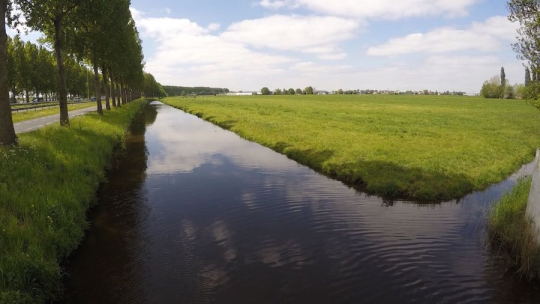
be one with it.
embracing flood & drought to feed tomorrow
While in the Netherlands I learned of Henk Ovink; a Dutch national who at the age of 47 had already established a global reputation as the man-for-water. During fellowship travel & meetings, Henk’s work throughout the Netherlands and that of the United States, came to light often. Most noticeably, his captaining the launch and orchestration of the epic Superstorm Sandy rebuild. So impressive was his knowledge and insightful plan – United States Secretary of Housing and Urban Development, Shaun Donovan, expedited Henk’s ownership of this supremely high-profile clean-up & rebuild effort through a creative trade relationship engaging Henk as special water envoy to the US. At this point in time, when the United States of America is making-up new titles for you – you’ve got some good things cooking.
Entering my last week in the Netherlands, after hearing of these accolades of a real-life Aquaman tackling significant problems – I had to reach out to the Grande Dames of Eisenhower Netherlands and ask for help in setting-up a meeting with this guy. And they did, quickly opening the doors for which Lia from APEP again executed. We had a meeting arranged that next Monday, a holiday in the Haag.
HENK OVINK – Special Water envoy to US
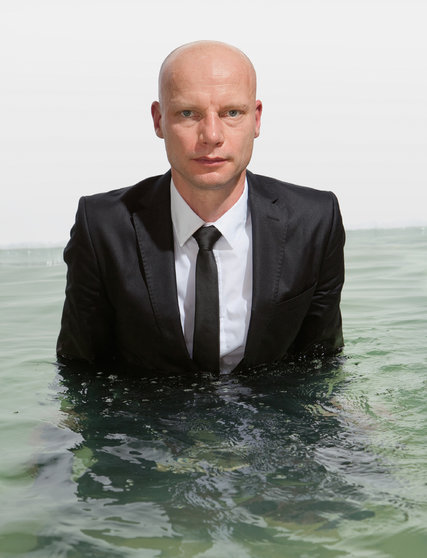
Water has not been a policy issue in the U.S. That’s because you’re mostly all above sea level. But what if the sea level changes? H.OVINK
To establish some scope as to why I was so intrigued to meet with Henk – water is agriculture; especially all future agriculture. It’s vitally important to learn how to better maintain reservoirs increasingly stressed to serious jeopardy; how to properly store water in the sponge of topsoil; how not to contaminate our vital building block which literally is our essence; and how to deal with risks of drought, flood or destructive forces of sea or fresh water-surgence to current food production. With 70% of global fresh-water currently being allocated to agricultural irrigation, and known expansion plans of demand and imprint – as we begin to see conventional production pressing closer to an impending ceiling, water seems destined to be the instigator of change in food. A modern stab at a food-plan that tackles water issues would prevent further risks of failure like drought in California, or that of the looming possibility of a 2nd dust-bowl when the Ogallala aquifer that stitches together overwatered production in our breadbasket reaches point of no return. Often defined as next oil, I think water is a hell of a lot more important than that; without access to ample water to raise food from plant nor animal- we’ll fail through our food, thanks to water.
Henk and I caught-up at a outdoor cafe in the Haag. He’s a smooth cat, with big plans. I enjoyed our conversation greatly; his work ethic was as apparent as his intent. The results he’s demonstrated with engaging public and private sector is inspirational. He explained that without strong dykes and buffering of canals – 60% of the Netherlands would be underwater. Basically, the entire process the Dutch have adopted and built innovation around is – instead of fighting water, embrace it with open arms. This stems from a same vein that looks for innovation in water, including agricultural models that originated wind-mills, and channels to buffer floods through properly storing water for future irrigation. Henk’s model for SuperStorm Sandy pulled together best innovations and technologies in a creative manner. Supremely smart planning followed suit, and his use of an innovation economy has and will go a long way in affording better resistance during times of stress or disaster that will be proven not only immediately in Long Island sound, but around the US and globe as much of these best practices are being shared, and scaled for global consumption.
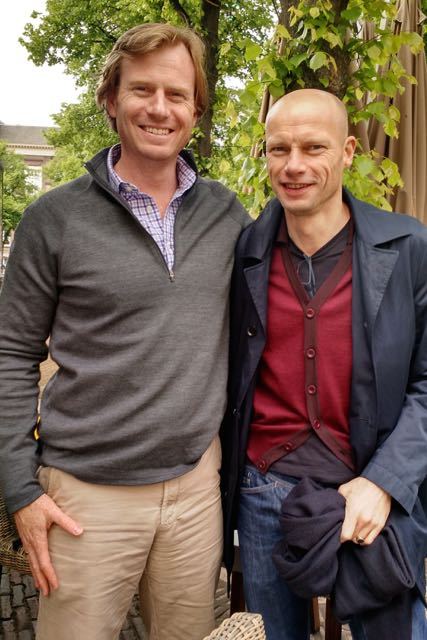
‘How to think like a Dutchman in a post Sandy-World’ – NYTimes:
Dutch skill at water management goes back to the dikes, dams and windmills with which they reclaimed much of their land from the seas and rivers starting in the Middle Ages. In the 1950s, they constructed the Delta Works, a revolutionary series of storm-surge barriers along the North Sea coast. But thinking has evolved since then. With the increasing threat caused by climate change, Dutch engineers have developed strategies that go beyond simply trying to keep water out. The city of Rotterdam, for instance, is building floating houses and office buildings and digging craters in downtown plazas that will be basketball courts most of the year but will fill up with runoff during high-water periods, taking the strain off the surrounding streets.
Henk Ovink employed an innovation economy to deliver Rebuild By Design, an RFP that received hundreds of original bids as possible allocations for Super Storm Sandy relief money. Drawing from the best thought-leaders and planners of resilience from around world, coastal New York & New Jersey gained the eye and resulting submissions of some of the most talented folks in the world through what could be best defined as a successful idea-crowd-funding initiative. Henk defined a plan, he got the best, and they delivered in droves…
Most recently, Henk and the Dutch government began a plan to foster greater water ingenuity. One of the booklets provided at our meeting,Water Innovations in the Netherlands presents 35 different innovations dealing with a diverse way to best utilize or prevent water catastrophe.
In March 2015, Ministers Schultz van Haegen (Infrastructure and the Environment), Ploumen (Foreign Trade and Development Cooperation) and Kamp (Economic Affairs) appointed Henk Ovink (47) as the first Special Envoy for International Water Affairs for the Kingdom of the Netherlands. In his capacity as thematic ambassador, the Special Envoy for International Water Affairs reinforces Dutch ambitions in the water domain; he contributes to boosting the international market position of Dutch know-how and expertise.
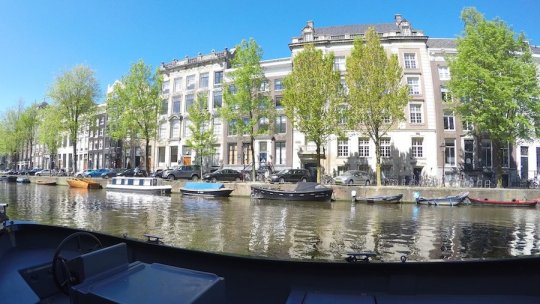
Worldwide, water is a connecting issue. With its integrated approach to water shortages, water safety, water quality, logistics and transport, the Netherlands make the difference across the globe. We are leaders in the field, which is welcome, but that also obliges us to continue to invest and innovate, in the Netherlands and abroad. Our Dutch know-how and expertise are unique. I see plenty of opportunities to utilize this knowledge even better at the international level.”
Ambassador:
The key task of the Special Envoy for International Water Affairs involves economic diplomacy: as the ambassador for the Dutch water sector, he is responsible for maintaining good relations with foreign governments, knowledge institutions, umbrella organizations, coordinating and representative bodies, the business community and civil society organizations. He establishes connections with the other relevant top sectors (energy, agriculture, the creative industry). He collaborates closely with Dutch Embassies, Consulates and Permanent Representatives. He also maintains direct contact with bilateral and multilateral actors such as the World Bank, the United Nations, the OECD and the EU. He’s representative of the Ministers at international water meetings.
Henk previously held the position of Deputy Director-General of Spatial Planning and Water Affairs at the Ministry of Infrastructure and the Environment, and Director of National Spatial Development. Mr. Ovink currently serves as a senior advisor to the American Federal Government and the former Hurricane Sandy Rebuilding Taskforce instituted by President Obama. For the reconstruction of the New York and New Jersey region, he developed and lead the ‘Rebuild by Design’ contest, which CNN designated as one of the most innovative ideas of 2013. Mr. Ovink has a long record of service in the business community, education and the government in the fields of spatial planning, water management and culture. Among other activities, he has served as Curator to the 5th International Architecture Bienniale Rotterdam, he sits on the International Advisory Board of the city of Rotterdam, he teaches at Harvard GSD and he advises the Rockefeller Foundation regarding their approach to resilience and water safety.
No water, no life. No blue, no green. S. EARLE
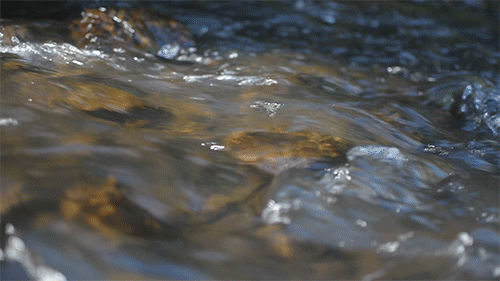
Getting too much water, or too little, is a reality of modern agriculture. It’s the elixir and the expeditor! The contamination of runoff & depleting process of conventional practice is stressing systems once assumed to have ample supply. The circular system gives back, and the more waste you can reduce – the less input and expenditures are incurred the following year – this holds very true for water. Circular also reduces the risk of synthetic toxins and steroids reaching the water system through abstinence; at least that’s what Henk tells me he and his buds at the Hall of Justice are working on.
